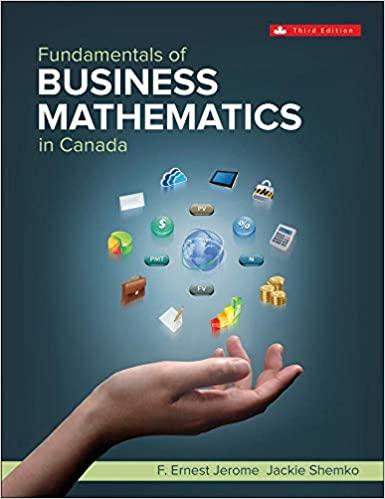Question
for the following questions, your response should demonstrate a comprehensive understanding of the literature, provide accurate and ample insight, and cite relevant research in an
for the following questions, your response should demonstrate a comprehensive understanding of the literature, provide accurate and ample insight, and cite relevant research in an appropriate and consistent way to illustrate your arguments. Also, remember to include a bibliography/reference section at the end.
1. You ultimately decide to conduct a large-N survey of public schools across the state to assess different factors affecting educational performance. Discuss in detail how you would administer such a survey. How would you design and implement the survey? Who would be your target respondents, i.e. principals, administrators, teachers? How would you ensure that your samples are random and representative? What are the pros and cons as it relates to financial costs and response rates? What concerns should you consider as it relates to internal and external validity? Do you think it would be sufficient to survey just schools? Or would you also consider surveying parents and families? Why? *NOTE: You do not have to devise an actual draft of the survey itself. explain thoroughly
2. interpret the following OLS regression output. Given New Mexico's lack of budgetary resources compared to other states, to devote more to public education, you decide to look into the option of contracting out to private firms for certain noninstructional services such as food services, transportation, or custodial services. The idea is that contracting out might free up public resources to devote more towards core instructional tasks. Assume you collect data on a sample of 452 public schools in NM. Table 1 displays the output of the relationship between contracting out and student pass rates. The dependent variable, or outcome, is the student pass rate for the state exam. The main independent variable of interest is the percentage of schools contracting out noninstructional services to private companies. The control variables are the % of minority students, % poverty rate, % of students enrolled in gifted classes, teacher salaries, and class size.
First, identify which independent variables are significant at the conventional 0.05 (5%) level and provide a technical interpretation of their unstandardized coefficients, i.e. "a one unit increase in (insert name of variable) predicts a how many unit increase in (insert name of dependent variable)". Second, provide a substantive interpretation of what this means in terms of how these variables just identified predict student pass rates.
Now what would happen if you increase the significance level to 0.10 (10%)? What additional variables become significant? Provide a technical interpretation of their unstandardized coefficients. Next, provide a substantive interpretation of what this means in terms of how these additional variables predict student pass rates. Meanwhile, identify and interpret the R2-value reported in the output. What does it say about the overall model fit?
Finally, what is the overall story here? What is the message you would convey to a lay audience about the relationship between contracting out and educational performance? As a policy analyst, what recommendation would you give to the senior executives at the NM Public Education Department?
Table 1. Regression Output of the Effects of Contracting Out on School Performance | ||||
| Unstandardized Coefficients | t | Sig. | ||
B | Std. Error | |||
Independent Variable | ||||
Percentage contracted out | 0.024 | 0.034 | 1.464 | .000 |
Control Variables | ||||
% minority students | -0.216 | 0.203 | -2.889 | .021 |
% poverty | -0.201 | 0.162 | -1.672 | .014 |
% students enrolled in gifted classes | 0.229 | 0.143 | 1.290 | .273 |
teacher salaries | 0.629 | 0.327 | 0.322 | .081 |
class size | -0.259 | 0.192 | -0.063 | .075 |
N (sample size) | 452 | |||
Goodness-of-fit tests | ||||
R2 | 0.42 | |||
F-stat | 107.63 | |||
* Dependent variable: Statewide exam student pass rate |
Step by Step Solution
There are 3 Steps involved in it
Step: 1

Get Instant Access to Expert-Tailored Solutions
See step-by-step solutions with expert insights and AI powered tools for academic success
Step: 2

Step: 3

Ace Your Homework with AI
Get the answers you need in no time with our AI-driven, step-by-step assistance
Get Started


